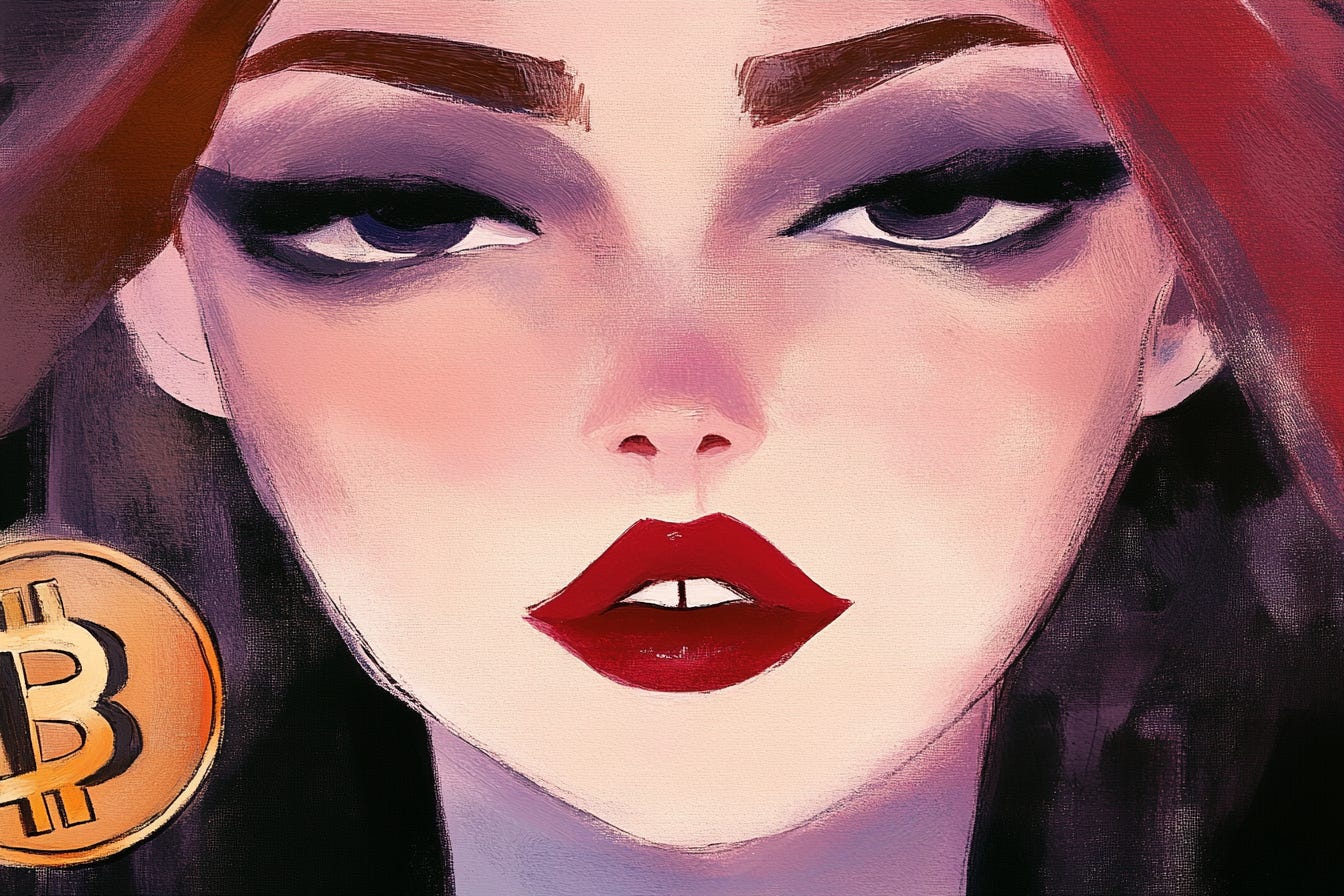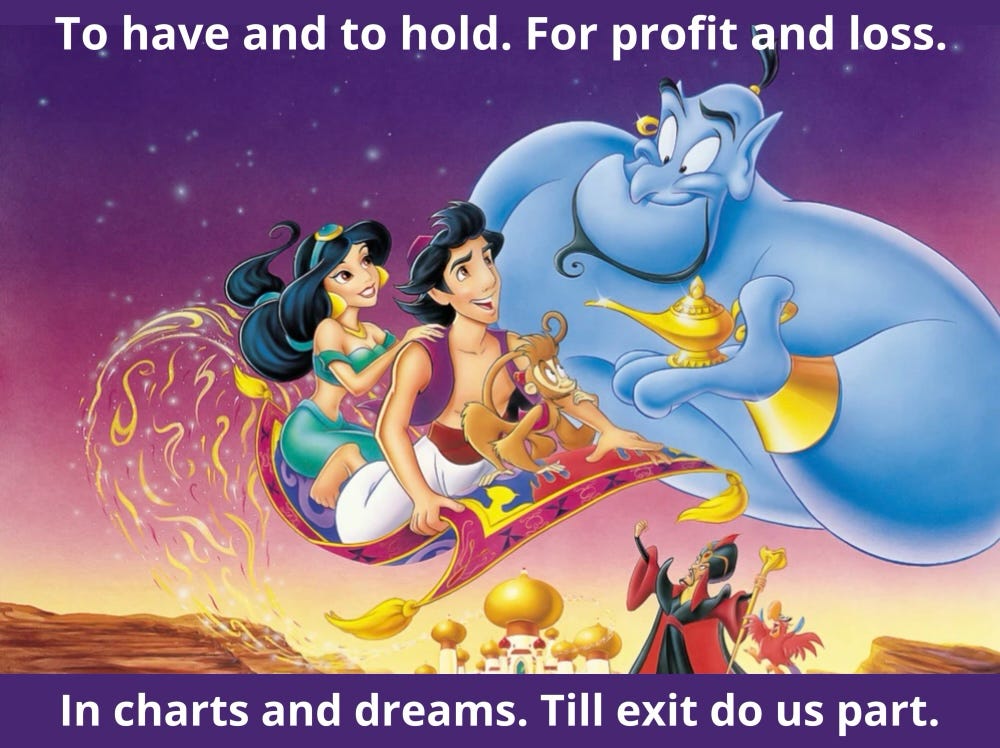Paper Dreams
I grew up watching my ten-year-old self create a theater in our family backyard. The currency was homemade lemonade and sweets — our version of tickets. We performed stories about mythical heroes and impossible dreams, fueled by nothing but imagination and sugar rushes. No ROI calculations, no market analysis, just pure creation and sharing. Today, watching the explosion of NFTs and Real-World Assets (RWAs), I smile at how we’d inadvertently created our own little tokenized economy, driven purely by joy.
My heritage is a tapestry of artists, merchants, and intellectuals — a combination that should have prepared me for this world where creativity meets commerce. Instead, it created a peculiar blind spot. At our dinner table, money talk was beneath us. We discussed Dostoevsky’s insights into human nature, debated the role of art in human evolution, analyzed the latest underground music performances. But never the mundane reality of making ends meet.
When I landed in Iceland as a student, reality hit hard. Suddenly, I had to do something alien — ask for money for my work. While my Western friends confidently quoted rates and negotiated terms, I stumbled through pricing conversations like a toddler learning to walk. Some clients, sensing this reluctance, simply didn’t pay. Each unpaid invoice was a harsh lesson in the reality I’d been trying to avoid.
The First Kiss
Paradoxically, my true education about money came at the United Nations. There, launching the first self-sustainable operation became an unexpected masterclass in marrying conviction with commerce. It was almost ironic — here I was, learning the hardest lessons about financial sustainability in this temple of humanitarian idealism. We transformed a traditional spending unit into a revenue-generating operation, producing content that both served the mission and sustained itself. Many within the system couldn’t comprehend it. Their world operated on spending budgets, not generating them.
The UN taught me that even soulful purposes need financial fuel. My films about peacekeeping, environmental initiatives, human rights, and micro-entrepreneurship across the globe weren’t just stories; they were projects that needed funding, distribution, and, yes, returns. Each production was a delicate balance between telling urgent truths and ensuring we could keep telling more stories. This was soul meeting money in its purest form — not for personal gain, but for sustained impact.
Complicated Love
Then came the years when money consumed everything. Running three companies simultaneously transformed my days into streams of financial projections, funding rounds, and investor pitches. The pursuit of profit became a demanding companion, each goal achieved revealing infinite more to chase. In the relentless drive for growth, I found myself speaking a new language — one of returns, valuations, and market penetration. My days became cashflow projections, my nights — tears shed over excel spreadsheets.
Yet, in this intense immersion in the world of finance, something unexpected happened. The deeper I dove into the mechanics of money, the clearer I could see its true nature. Behind every financial target was a human story. Beyond every profit goal was a soul waiting to be remembered. The dreamer who wanted to change the world wasn’t buried under spreadsheets — simply learning to translate passion into a language money could understand.
Ever After
Now, immersed in financial technology, I find myself in a daily dance with markets and money. The blockchain projects I work with are simultaneously about democratizing finance and honoring human values. But there’s a twist I never expected. The more we work with technology, the more it highlights our humanity. Each transaction, each financial innovation, forces us to confront fundamental questions about value, trust, and what truly matters.
Like the great artists who embedded their essence in their masterpieces — Da Vinci’s Madonna, Michelangelo’s Sistine Chapel, Gaudi’s Sagrada Familia — we too leave traces of our humanity in our work. Every smart contract carries not just instructions but intentions. Every platform we build reflects not just functionality but values.
The technology we work with now — blockchain, AI, the endless streams of data — they’re just new tools for an age-old human need: to matter, to make a difference, to leave a mark. When we design financial systems for a new project, we’re not just creating profit mechanisms; we’re creating frameworks for human connection. When we optimize for profit, we’re really optimizing for human possibility.
Like all profound relationships, money and soul don’t need to balance each other out — they need to transform each other. Money will always be there, demanding attention. The key is remembering it measures something deeply human — our ability to create value, to connect, to make a difference. Behind every number lies a story of human possibility waiting to unfold.
And just like that theater in our backyard, where lemonade was the currency and dreams the only measure — never forget what made your soul fall in love in the first place.
This is The Reluctant Marketer. A series on how we fight to keep story alive in a world that speaks money. About how sometimes the best way to stay true is to master what we once despised and use it for our long game. How to never forget why.
Welcome to my confessions.
Your path might be different. Share your story of dreams, detours, and discoveries. Every reluctant professional journey adds another chapter to this ongoing story of purpose and perseverance.






